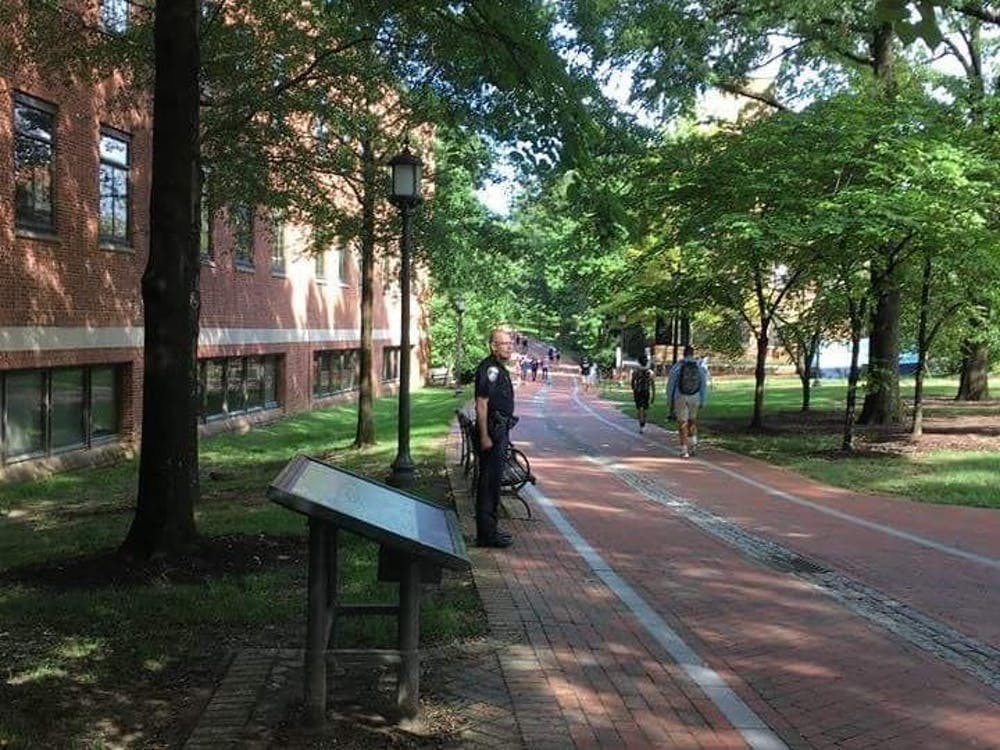In response to the University’s efforts to implement the Johns Hopkins Police Department (JHPD), over 100 Hopkins faculty members signed a letter addressed to the Board of Trustees. The letter, which was sent on Jan. 13, detailed six major concerns shared by the signatories, highlighting the negative impacts a private police force could have on the greater city of Baltimore.
The letter states that the signatories continue to oppose a private police force and believe that instead, the University should dedicate its resources to addressing the root cause of crime.
Some solutions faculty members endorsed are mental health resources, youth-oriented education programs and offering public health services for drug addiction, citing experts from both the University itself and active community members.
“Johns Hopkins can do far more to repair its reputation and enhance the safety and wellbeing of our Institutions and the residents of Baltimore by focusing on what it can do best: promote public health and educational strategies for crime reduction,” the letter states.
According to signatories, private University policing does not enhance community and campus safety, reduces accountability and transparency, reinforces the image of Hopkins as a “gated community” and generates public controversy.
Although the legislation allowing Hopkins to create its own police force passed last spring, faculty members felt it was still imperative to write to the Board of Trustees.
In an interview with The News-Letter, one of the orchestrators of the letter, Toby Ditz, professor emeritus of History at the Krieger School of Arts and Sciences, explained that although the legislation passed, there are still many steps Hopkins has to complete before the implementation of a private police force.
This April, Maryland Governor Larry Hogan approved the Community Strengthening Act, allowing Hopkins to establish a private police force over a multiyear process. The bill mandates a Memorandum of Understanding (MOU), which would lay out details regarding JHPD’s jurisdiction in accordance with the Baltimore Police Department.
However, the MOU has not been able to be completed because the University has not hired a new Vice President of Security to replace Melissa Hyatt, who was appointed Baltimore County Police Chief this past summmer.
In a previous interview with The News-Letter, University President Ronald J. Daniels stated that, as of early December, the University was still deliberating the position of Vice President of Security.
“Because we have not yet finalized the recruitment of a candidate, we have essentially put the MOU negotiation, MOU development process on hold. There’s simply no activity taking place right now with respect to the MOU,” he said.
He added that the administration was considering utilizing an outside consultant to draft the MOU, noting that once the draft was finished it would be made public in hopes of increasing transparency on campus.
Ditz explained that this lull in progress is an opportune time for the faculty to reiterate their protests of the JHPD.
“This is a time where [the University] could call a halt if they thought they ought to. We thought that this was a very good time — before the University moves much further — to make our voices heard,” she said.
In addition, the letter coincides with the Dec. 18 publication of the JHU Homewood Faculty Assembly Fact Finding Committee (FFC) Report on the Garland Hall Sit-In, which summarized the events that transpired during the 35-day sit-in. This report criticized the University administration for failing to provide set rules of amnesty, which was granted to students based on unknown factors.
On page 40, the report also condemned the University for not having a set of rules and regulations for police officers who were present at the sit-in.
“For FFC members, it was chilling to watch Hopkins security refuse to act when obviously distressed students asked badged Hopkins security officers for help, and then after asking why were they present if not to help, and have one dismissively answer that they were there ‘to protect Johns Hopkins property,’” the report states. “Quite remarkably, there has been no public accounting regarding the same security officer who eventually assaulted a student.”
In an email to The News-Letter, Ditz explained that this report, which drew the attention of the Baltimore Sun, echoed many of the same sentiments expressed by faculty members.
“Though the report takes no position on the establishment of a JHU police department, its findings, which were not available to us when the letter to the Board was drafted, support our skepticism about the current administration’s capacity to meet the very high bar for transparency needed in police matters,” she wrote.
Faculty members published a similar letter of protest in February, which did not hinder the legislation regarding the JHPD.
When asked about whether or not she believed that this letter would have more of an impact on the University’s decisions to modify their attempts to create a police force, Ditz disclosed that the purpose of the letter was twofold.
She asserted that first, it argues against the administration’s decisions, and second, it lets the public know that faculty members are still protesting.
“We really did want to let people know. That includes the Board of Trustees, other constituents inside the University. But, just as importantly, we’re also letting people outside of the University know that the opposition to the legislation still persists,” she said.
Members of the Sit-In did not respond to multiple request for comment.





